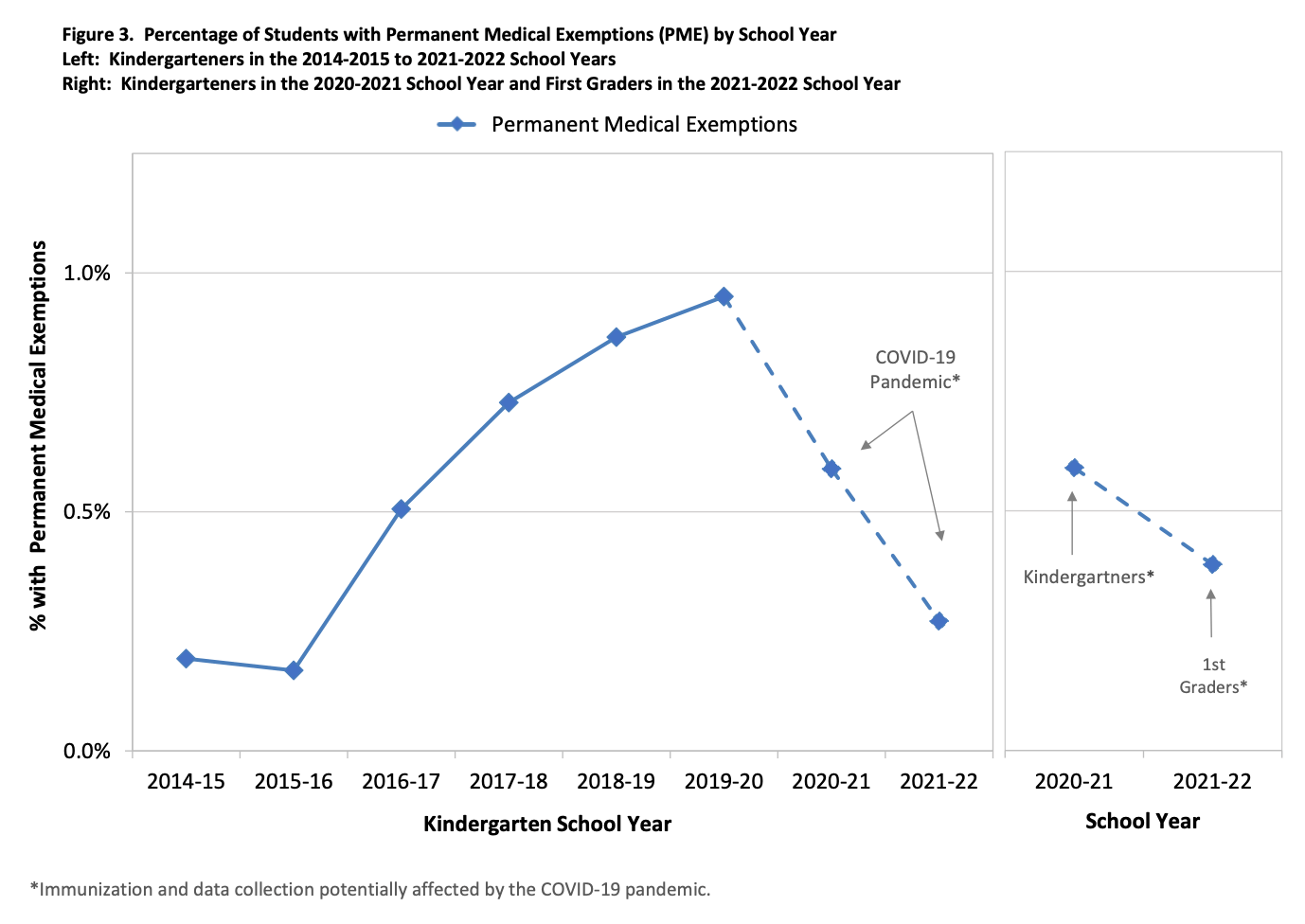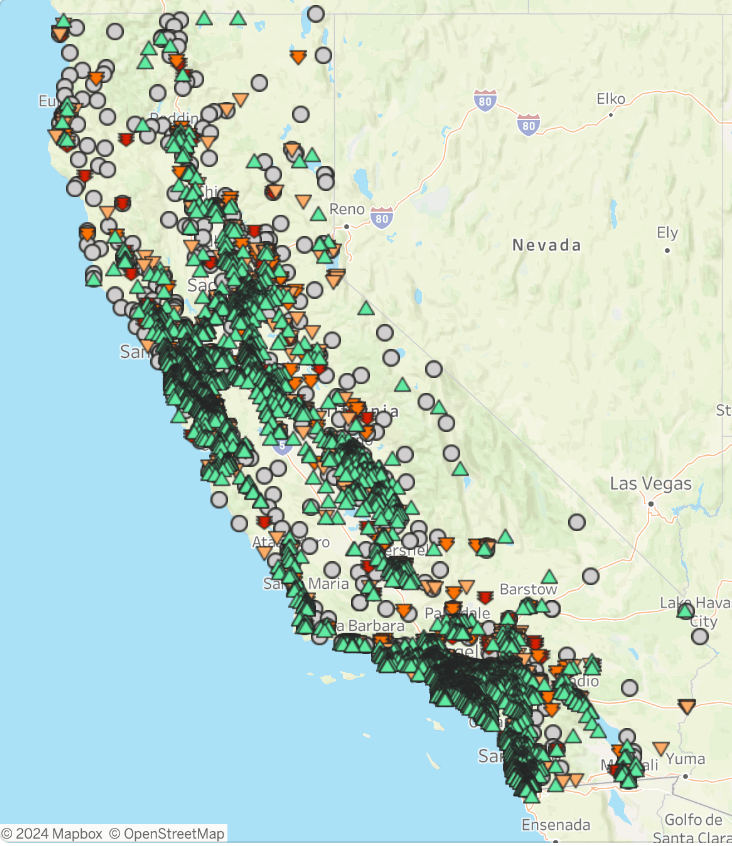Vaccinations and Schools

Saving lives together
Not so long ago, childhood diseases like whooping cough, chicken pox, measles, mumps and rubella claimed the lives of thousands of American children every year. Many children who survived were left with scars or chronic health problems.
Anti-vax politics vs saving lives
Universal vaccination has been one of the most successful medical interventions in human history. By ensuring that all children are vaccinated, these terrible diseases became rare — the stuff of history lessons, not daily news.
As schools get started each year, safety is on the agenda. Part of keeping kids safe involves an important bit of paperwork: ensuring that each student has been properly immunized. The beneficial impact of this policy has been massive. According to the Centers for Disease Control (CDC), “Among children born during 1994–2023, routine childhood vaccinations will have prevented approximately 508 million cases of illness, 32 million hospitalizations, and 1,129,000 deaths, resulting in direct savings of $540 billion and societal savings of $2.7 trillion.”
Students in California must be vaccinated to attend school.
The dangerous "anti-vax" movement
Despite this success, or perhaps because of it, it's easy to assume that "old" diseases are no longer a threat. Some public figures (notably Robert F. Kennedy Jr.) have made themselves famous, or infamous, by sowing doubt about whether vaccinations are safe or necessary. Doubt causes hesitation, and vaccination rates have declined in some places. Until 2016 it was legal for parents in California to enroll unvaccinated children in public school simply by registering a personal belief statement. An outbreak of measles in 2015 served as an important reminder: these diseases are still a deadly reality.
They will come back if allowed to do so.
To protect children and the general public, in California each child must be immunized unless there is a specific, medically valid reason to leave them vulnerable, adding to the risk for them and the community. Prior to 2016, families could “exempt” their children from vaccination on the basis of “personal belief.” Unfortunately, doubt is itself contagious. The personal belief exemptions spread, creating unsafe pockets where outbreaks could occur. In 2016 the California Legislature tightened the rules, allowing students to be unprotected only based on "physical condition or medical circumstances." Some physicians abused their power to interpret the meaning of medical necessity, but immunization rates improved in most communities.
According to the California Department of Health, which tracks the use of medical exemptions, vaccine coverage improved after the law went into effect, significantly improving public safety from outbreaks.

Each School Counts
According to the California Department of Public Health, to prevent transmission of disease in a community at least 95% of children at each school must be immunized. At most schools, the vaccination rate is safely above this level, but the rate varies significantly from school to school.
Outbreaks are most likely in school communities where anti-vaccination beliefs take root. If groups of parents take measures to “exempt” their children from protection, diseases are more likely to spread.
There are patterns. Historically, the schools where children are most at risk of an outbreak tend to be charter schools or private schools. Schools audited for low vaccination rates tend to have higher shares of low-income, Black, and Native American students.
Former California Senator Richard Pan led efforts to address these pockets of vulnerability by putting an end to "personal belief" exemptions and tightening the standards for medical exemptions. Cracking down on unscrupulous doctors who issue medically unnecessary exemptions was an important part of the plan, too.
Check your school's immunization rate
Is your school among those susceptible to an outbreak? A helpful (but dated) map from the California Department of Public highlights schools with low vaccination rates. EdSource created a focused version of the map in 2023, highlighting about 500 schools where communities were at greatest risk.

What about Covid and flu vaccinations?
While Covid and the flu can both be fatal, school vaccinations for these diseases are not required in California. No states require school Covid vaccinations and only a few require flu vaccination.
Does that mean students shouldn't get vaccinated? Far from it. The United States Center for Disease Control (CDC) recommends that children be vaccinated every year.
|
CDC guidance about flu and Covid vaccinations |
|
|---|---|
|
Flu |
Everyone 6 months of age and older should get a flu vaccine every year. It's the first and best way to protect against flu. |
|
Covid-19 |
Everyone aged 5 years and older should get 1 dose of an updated COVID-19 vaccine. Children aged 6 months–4 years may need multiple doses to be up to date. |
Which vaccinations are required in California?
Required immunizations vary by age.
|
Summary of requirements |
|
|---|---|
|
What shots does my child need and where can we get them? |
|
|
Which vaccines are required for school? |
|
|
HPV required notices: Cancer prevention |
Starting in 2024, the California Cancer Prevention Act requires schools to notify families of 6th graders about human papillomavirus (HPV) vaccination recommendations. Schools can use this Template Letter to Parents. |
What do other states require?
Vaccines work through herd immunity. To work, they have to be widely used, and the US Supreme Court ruled in 1905 that states have the authority to require them. Even so, such mandates always been controversial. According to the National Academy for State Health Policy, state legislatures in Florida, Texas, and 19 other states have banned schools from requiring vaccination against Covid.
If you find that your school community has a lot of unvaccinated children or faculty members, be thoughtful about how you approach the problem. Changing someone's mind can be difficult. A clumsy confrontation can make it even harder. A podcast episode from Hidden Brain, Facts Aren't Enough, might be of use.
Updated November 2024.
Tags on this post
Health Kindergarten VaccinationAll Tags
A-G requirements Absences Accountability Accreditation Achievement gap Administrators After school Algebra API Arts Assessment At-risk students Attendance Beacon links Bilingual education Bonds Brain Brown Act Budgets Bullying Burbank Business Career Carol Dweck Categorical funds Catholic schools Certification CHAMP Change Character Education Chart Charter schools Civics Class size CMOs Collective bargaining College Common core Community schools Contest Continuous Improvement Cost of education Counselors Creativity Crossword CSBA CTA Dashboard Data Dialogue District boundaries Districts Diversity Drawing DREAM Act Dyslexia EACH Early childhood Economic growth EdPrezi EdSource EdTech Education foundations Effort Election English learners Equity ESSA Ethnic studies Ethnic studies Evaluation rubric Expanded Learning Facilities Fake News Federal Federal policy Funding Gifted Graduation rates Grit Health Help Wanted History Home schools Homeless students Homework Hours of opportunity Humanities Independence Day Indignation Infrastructure Initiatives International Jargon Khan Academy Kindergarten LCAP LCFF Leaderboard Leadership Learning Litigation Lobbyists Local control Local funding Local governance Lottery Magnet schools Map Math Media Mental Health Mindfulness Mindset Myth Myths NAEP National comparisons NCLB Nutrition Pandemic Parcel taxes Parent Engagement Parent Leader Guide Parents peanut butter Pedagogy Pensions personalized Philanthropy PISA Planning Policy Politics population Poverty Preschool Prezi Private schools Prize Project-based learning Prop 13 Prop 98 Property taxes PTA Purpose of education puzzle Quality Race Rating Schools Reading Recruiting teachers Reform Religious education Religious schools Research Retaining teachers Rigor School board School choice School Climate School Closures Science Serrano vs Priest Sex Ed Site Map Sleep Social-emotional learning Song Special ed Spending SPSA Standards Strike STRS Student motivation Student voice Success Suicide Summer Superintendent Suspensions Talent Teacher pay Teacher shortage Teachers Technology Technology in education Template Test scores Tests Time in school Time on task Trump Undocumented Unions Universal education Vaccination Values Vaping Video Volunteering Volunteers Vote Vouchers Winners Year in ReviewSharing is caring!
Password Reset
Search all lesson and blog content here.
Login with Email
We will send your Login Link to your email
address. Click on the link and you will be
logged into Ed100. No more passwords to
remember!














Questions & Comments
To comment or reply, please sign in .
Jeff Camp - Founder August 21, 2019 at 3:54 pm
August 21, 2019 at 9:43 am